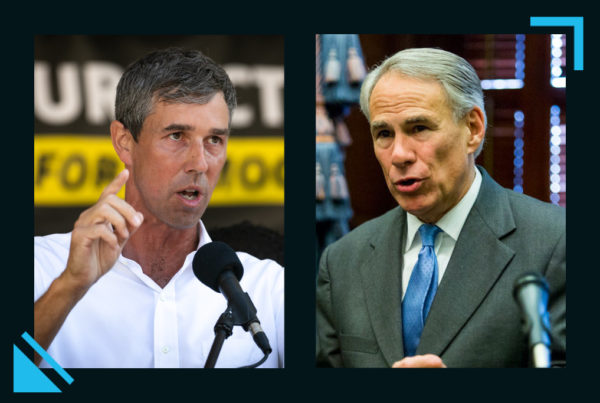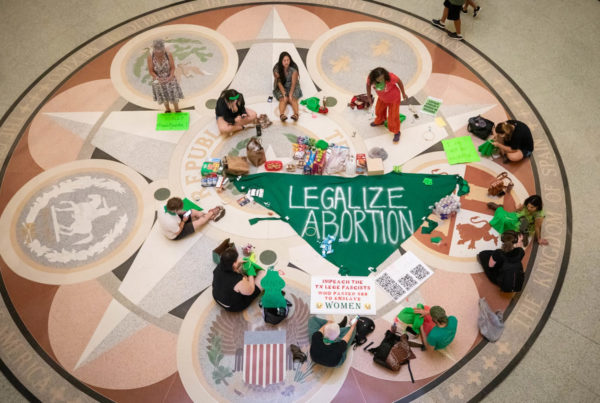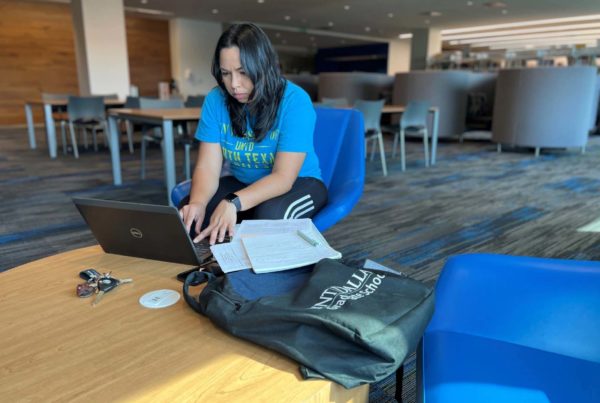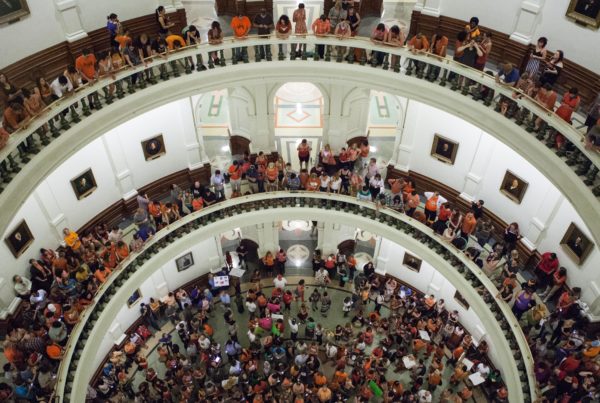Public schools – in Texas and beyond – have increasingly become political battlegrounds of late. COVID-19 precautions and the teaching of gender and race theory are the most recent hot-button issues firing up parents, teachers and administrators at school board meetings.
But one controversial schooling issue that has endured for years is that of school vouchers – which allows parents to use government funds to send their kids to private school.
Now, an investigation by Texas Monthly reveals how Wimberley ISD, a small Hill Country school district, became a testing ground for private school voucher advocates to try to expand the program across Texas.
Forrest Wilder is senior editor for Texas Monthly and spoke with the Texas Standard about the plan, and how it may set the stage for a school voucher battle in the upcoming legislative session. Listen to the story above or read the transcript below.
This transcript has been edited lightly for clarity:
Texas Standard: First of all, before we get into the particulars of this proposed plan to fund private schools with taxpayer money, tell us about the players in this story.
Forrest Wilder: So this plan wasn’t cooked up locally in Wimberley. It was developed or created by a consortium of individuals from out of town. One of the key players is a gentleman named Aaron Harris, who is a Fort Worth area Republican consultant and operative who may be best known for spreading information and misinformation about voter fraud in Texas. So he’s one of the architects of this plan, as well as an executive in a charter school chain – a woman by the name of Kalese Whitehurst, who works for Responsive Education Solutions with connections to Governor Abbott; and then in Wimberley, there’s a gentleman who moved to town about a year ago by the name of Joe Basel, who describes himself as a systemic disruption consultant. A few legislative sessions ago, when there were folks at the Capitol following legislators and lobbyists around with video cameras trying to record everything, Joe Basel was the organizer of that effort. So that consortium basically put this plan together, brought it to Wimberley, and found some receptive ears, at least at first.
Well, what exactly is the idea behind this plan?
It’s complex, but essentially what they wanted to do was to use a loophole in state law to set up a private school voucher program by which this consortium that I described would recruit students from all over the state and then enroll them in Wimberley ISD. However, none of the students would actually attend Wimberley ISD. They would actually attend private schools, so on the finance side of things, Wimberley would be taking public taxpayer dollars, moving it through its partners– it’s this nonprofit and this charter school– and then the funding would eventually end up in private schools. So it’s a very creative or ingenious solution to getting around the fact that the legislature has never authorized a voucher program in Texas.
Is it already in place or is this just in progress?
Well, no. It was tried. They tried it, and ultimately, Wimberley decided to not go down that route. So effectively, it’s dead or defunct in Wimberley, but Wimberley just happened to be the place that they found receptive ears. Like I said, it could presumably work in any school district that was favorable to trying it, and in fact, one of the backers of this plan or proposal says he’s shopping it around to other districts. He just wouldn’t say which ones.
So why did Wimberley ultimately decide to opt-out? What was it that made them decide ‘we don’t want to be part of this’?
I think a faction of the school board– a more pragmatic faction, took a really hard look at the risks to the district. They talked to attorneys. They listened to their new superintendent and came to realize that standing up any kind of voucher program in Texas would make the district a pariah in the eyes of the public education community. It would be deeply upsetting to their staff. You have to understand vouchers are considered by many to be a mortal threat to public schools. The perception is that funding is drained from public schools and diverted over to private schools, and so it’s not exactly a popular idea in the public education world. And, you know, once they kind of realized that the risks maybe outweigh the benefits, they pulled the plug on it.
But nonetheless, it sounds like they’ve got a textbook of sorts for how to put together just such a voucher system, and you say that this plan is being shopped around to other districts. Does it appear that anyone’s biting?
Unclear. That’s kind of my next reporting front, is to try to figure that out. But one key point here is that the architects of this plan were – or at least one of them – was very explicit with me that their goal was to try to get this thing stood up in advance of the legislative session in order to sort of dare legislators who are on the fence about vouchers to oppose something like this. And keep in mind, they believe this to be perfectly legal under current Texas law. I don’t know if that’s actually the case, but they have lawyers that looked at it and that’s what they believe, so you can kind of see this may be laying the groundwork for what’s certainly going to be a very vigorous debate in 2023 when the legislature convenes. Presumably, you could take this framework and put it into state law, and that could be one option for creating some kind of voucher program in the state of Texas.
How much does this plan move Texas closer to the idea of some kind of full-on voucher system? I mean, clearly, this is landing on legislators’ radar. They’re picking up on your reporting, no doubt, but I’m curious what the reaction is going to be and where the legislature might actually move.
Well, that’s hard to say. I think the big context here is that voucher proposals have been heard by the legislature a number of times over the past few decades, and nothing’s ever passed, but they’ve come very close. In this moment, we have a backlash against public schools. You know, it is true that there are many community members, parents, political activists, etc., who are angry and taking advantage of that anger. And so I think on the voucher school choice side of things, folks believe that this is a do-or-die moment, that if they can’t get it done now, then they may never get it done. And so when the legislature does meet, you know, there’s going to be a lot of proposals and there’s going to be a lot of activity around this issue, and what happens, we don’t know, but I think we could feel pretty confident today that there is going to be kind of a knock-down, drag-out fight over this issue.
















